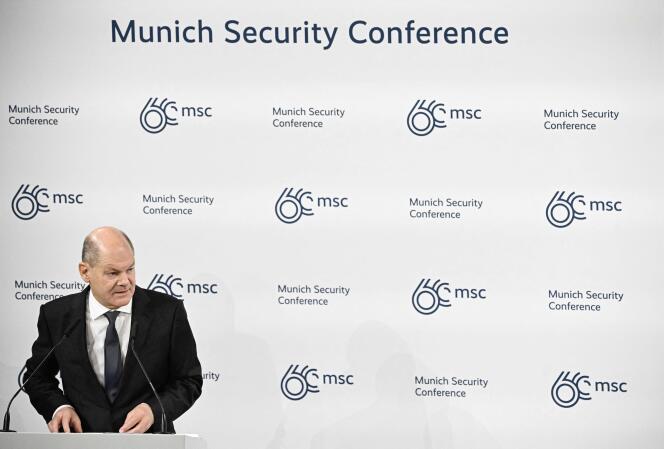
Is it the tragic death of Alexei Navalny? On the second anniversary of the invasion, Ukrainian troops were withdrawn from the small town of Avdiivka in the face of the Russian invader? Ukrainian leaders call for help over ammo shortage? Or is it the backlash of doubts Donald Trump has sown about the solidity of the transatlantic alliance? Perhaps it was all at once: a strong sense of urgency about the need to defend Europe gripped the participants in the 60s.e The Munich Security Conference will take place from Friday 16 February to Sunday 18 February.
On Saturday morning, Ukrainian President Volodymyr Zelensky clearly sounded the alarm, saying he was determined. “Putin May Lose” But on the condition that the Westerners accelerate and intensify their supply of military equipment. “Keeping Ukraine at a synthetic weapons deficit, particularly munitions and long-range strike systems, allows Putin to adapt to the intensity of the current war”Mr. Zelensky announced his audience before speaking with a phrase that earned him loud applause: “Don't ask Ukraine when the war will end. But ask yourself why Putin is able to keep her going. »
The day before, tensions had already escalated in Berlin and Paris, where the Ukrainian president had traveled to sign bilateral security agreements with Germany and France. Obviously, in these two European capitals, it is not only a question of helping Ukraine, but also of better protecting Europe: a discourse that has been going on for two years in Ukraine's European neighbors Poland and the Baltic states. But Western European leaders have so far been far less sensitive.
“The Russian threat is real”
In Paris on Friday evening, Emmanuel Macron had more stark words than ever about the state of the Russian threat: “Two years ago, the Kremlin regime attacked the European country of Ukraine. It has intensified and hardened its attacks against our country through misinformation and cyberspace. (…) Vladimir Putin's Russia has become a legitimate actor of world destabilization »French president worried, for whom “The need for a European initiative is clear, and more broadly from our allies, our partners and the international community.”
On Saturday morning, in Munich, Olaf Scholz, who devoted his entire speech to the war in Ukraine, sent the same message. “The Russian threat is real. That's why our deterrence and defense capabilities must be credible and remain so.The German chancellor announced. Putin and his generals in Moscow must understand that the world's most powerful military alliance can protect every square meter of our territory; Therefore, we must strengthen NATO's European pillar, including deterrence. »
You should read 65% of this article. The rest is reserved for subscribers.

“Alcohol enthusiast. Twitter ninja. Tv lover. Falls down a lot. Hipster-friendly coffee geek.”
